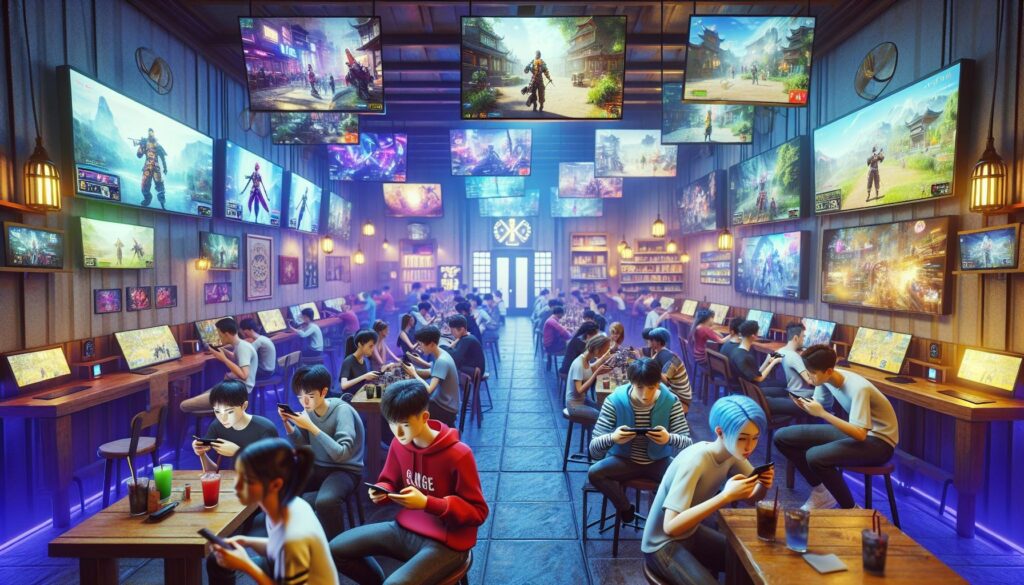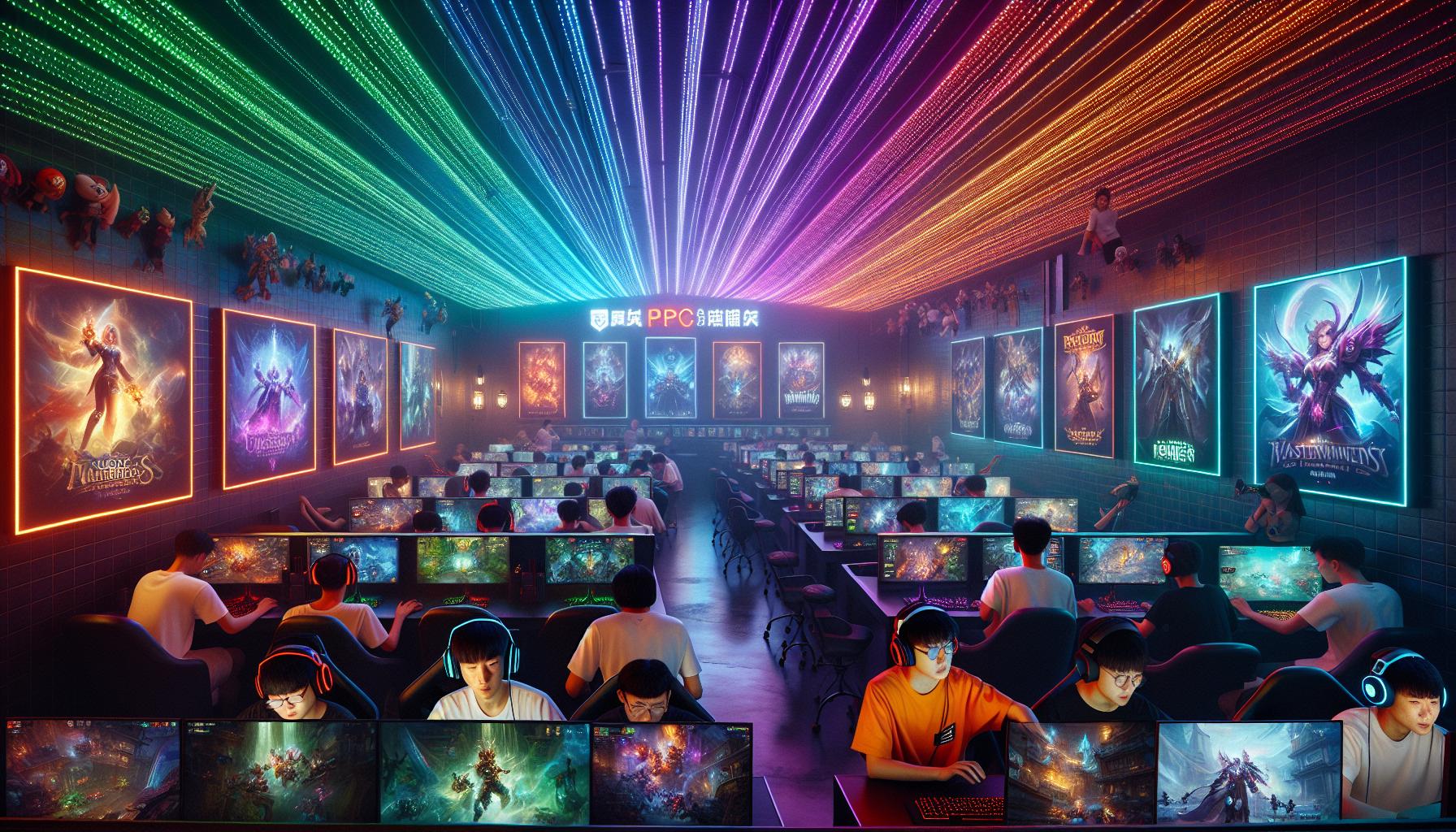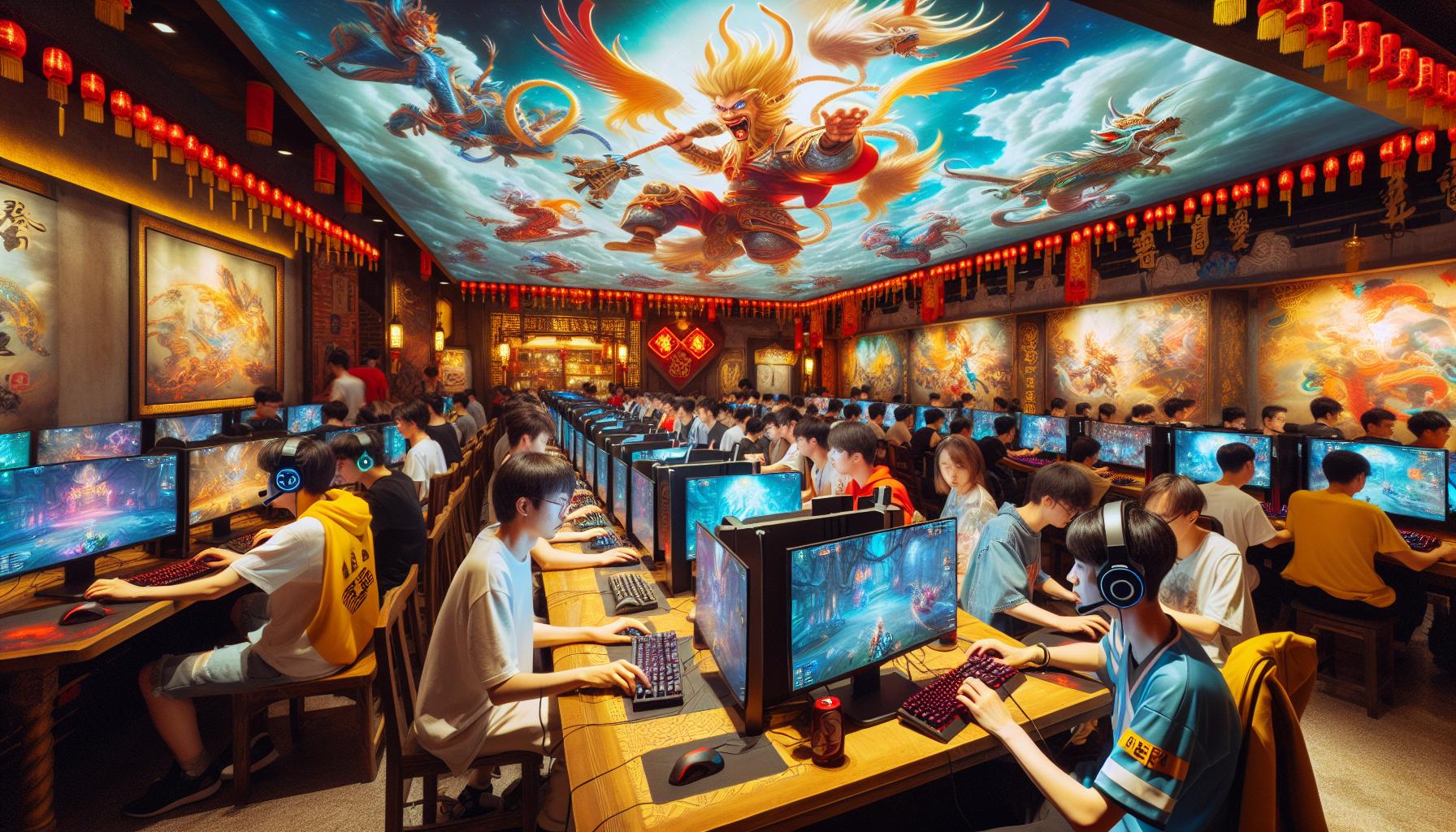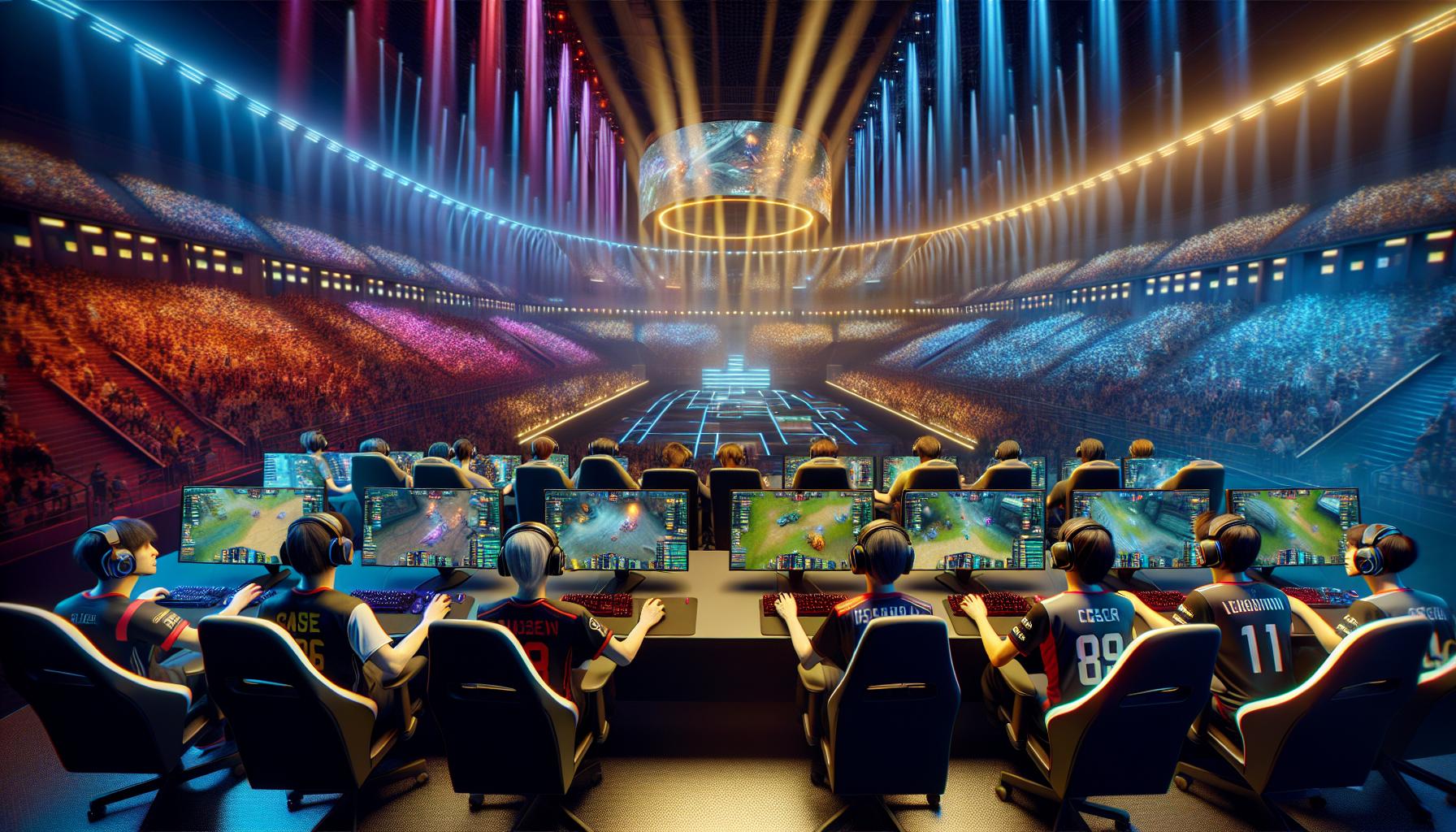China’s gaming scene isn’t just about playing games – it’s a cultural phenomenon that’s taken the world by storm. From bustling internet cafes in Shanghai to professional esports arenas in Beijing, gaming has become deeply woven into the fabric of modern Chinese society. With over 666 million gamers, China stands as the world’s largest gaming market, surpassing both the US and Japan combined.
The unique blend of traditional Chinese values and contemporary gaming culture has created an ecosystem unlike anywhere else. Mobile gaming dominates the landscape, with titles like Honor of Kings and PUBG Mobile drawing hundreds of millions of daily active users. It’s a world where gaming isn’t just entertainment – it’s a lifestyle, a career path, and for many, a way to connect with friends and family across the vast nation.
Chinese Gaming Culture
China’s gaming industry transformed from a niche hobby into a cultural powerhouse over two decades. The rapid expansion mirrors China’s technological advancement with gaming revenue reaching $45.5 billion in 2023.
From Internet Cafes to Mobile Gaming
Internet cafes emerged as gaming hubs in the late 1990s, providing affordable access to multiplayer games for millions of Chinese youth. These establishments peaked at 185,000 locations in 2006, creating social spaces where gamers gathered to play titles like CrossFire and League of Legends. By 2015, smartphones revolutionized gaming accessibility, shifting the focus to mobile platforms. Popular mobile games such as Honor of Kings attracted 100 million daily active users, while PUBG Mobile generated $2.8 billion in revenue from Chinese players in 2021. The transition to mobile gaming expanded the player base beyond traditional demographics, engaging users across age groups and socioeconomic backgrounds.
Impact of Government Regulations
Gaming regulations in China shaped industry development through specific guidelines and restrictions. The 2000 ban on gaming consoles lasted 15 years, directing the market toward PC and mobile gaming. In 2021, authorities implemented a three-hour weekly gaming limit for players under 18, affecting 110 million underage users. Game approval processes require developers to incorporate Chinese cultural elements and adhere to content standards. These policies influenced game design, leading to unique monetization models and gameplay mechanics. Companies like Tencent adapted by introducing anti-addiction systems and real-name verification, creating region-specific versions of global titles.
Popular Gaming Platforms and Games
Chinese gamers engage across multiple platforms, with distinct preferences emerging between mobile and PC gaming ecosystems. Each platform creates unique communities and gaming experiences tailored to Chinese cultural preferences.
Mobile Gaming Dominance
Mobile gaming captures 75% of China’s gaming market revenue, driven by titles like Honor of Kings and PUBG Mobile. Tencent’s WeChat platform integrates popular mini-games, attracting over 500 million monthly active users. Mobile games in China feature unique monetization systems based on cosmetic items and battle passes rather than traditional pay-to-win mechanics. Chinese developers optimize games for low-end devices, ensuring accessibility across diverse income levels. Popular mobile genres include multiplayer online battle arena (MOBA), battle royale and casual social games that emphasize team cooperation.
PC Gaming Communities
PC gaming thrives in China through established titles like League of Legends and CrossFire, each boasting over 100 million registered players. Internet cafes remain social hubs for competitive gaming, hosting regular tournaments and fostering local communities. Chinese PC gamers prefer free-to-play titles with microtransaction models, contributing to the success of games like Genshin Impact. Streaming platforms such as DouYu and Huya attract millions of viewers daily, showcasing professional gameplay and esports competitions. Major cities feature dedicated PC gaming centers equipped with high-end hardware for optimal gaming experiences.
Cultural Elements in Chinese Games
Chinese games incorporate distinctive cultural elements that reflect the nation’s rich heritage through gameplay mechanics storytelling elements. These elements create unique gaming experiences that resonate with both domestic players and international audiences.
Traditional Values and Mythology
Chinese games integrate classic mythological figures such as Sun Wukong Ne Zha into modern gaming narratives. Popular titles like Honor of Kings feature characters from the Four Classic Novels including Romance of the Three Kingdoms Journey to the West. Games emphasize Confucian values of respect for hierarchy family bonds through character relationships quest structures. Buddhist Taoist concepts appear in gameplay mechanics such as karma systems reincarnation cycles. Traditional art styles influence visual design with elements like cloud motifs dragon imagery classical architecture appearing in game environments.
Social Dynamics and Player Behavior
Chinese gamers prioritize team-based gameplay cooperative mechanics over individual achievement. Online games feature built-in social systems that connect players through clan structures guild organizations. Mobile games integrate with WeChat QQ allowing seamless social interaction between 500+ million active users. Players demonstrate strong loyalty to specific gaming communities forming tight-knit groups for daily activities tournaments. Gifting systems virtual items serve as important social currency enabling players to build maintain relationships. Gaming cafes function as physical social hubs where players gather to compete socialize share gaming experiences.
Esports and Professional Gaming
China’s esports market reached $403.1 million in revenue in 2023, making it one of the largest competitive gaming ecosystems globally. Professional gaming has evolved into a legitimate career path with structured leagues, professional teams and dedicated training facilities.
Major Tournaments and Teams
League of Legends Pro League (LPL) stands as China’s premier esports competition, attracting over 145 million viewers during peak events. Top organizations like Royal Never Give Up, Edward Gaming and FunPlus Phoenix compete for prize pools exceeding $1 million per tournament. The King Pro League for Honor of Kings draws 50 million daily viewers during its regular season matches. Notable Chinese teams have claimed multiple world championships, including EDG’s 2021 League of Legends World Championship victory. Regional tournaments like the Asia Games 2022 featured esports as medal events, with Chinese teams securing gold medals in FIFA Online 4 and PUBG Mobile competitions.
Celebrity Status of Pro Gamers
Chinese pro gamers command massive social media followings across platforms like Weibo and Douyin. Jian “Uzi” Zi-Hao boasts 8 million followers on Weibo, generating $1.5 million annually through streaming contracts. Ming “Clearlove” Kai’s retirement announcement reached 100 million views within 24 hours. Pro players appear in mainstream advertisements for brands like Mercedes-Benz and Nike. Gaming organizations operate dedicated talent management divisions to develop players’ public personas. Popular streamers like PDD attract 10 million concurrent viewers during special events, demonstrating the cultural impact of gaming celebrities in China.
Gaming Business and Industry
China’s gaming industry generates substantial revenue through domestic development and international expansion. Leading companies like Tencent and NetEase dominate the market with innovative technologies and strategic partnerships.
Domestic Game Development
Chinese game developers focus on creating content tailored to local preferences while incorporating advanced monetization strategies. Companies invest in research and development centers across major cities including Beijing, Shanghai and Guangzhou. Mobile game development takes precedence, with studios specializing in casual games, MMORPGs and battle royale formats. Development teams integrate culturally relevant elements such as mythology, martial arts and historical references into game mechanics and storytelling. Studios employ over 250,000 game developers nationwide, creating games that emphasize social features and multiplayer experiences. Local developers utilize cloud gaming technology and artificial intelligence to enhance gameplay experiences across multiple platforms. Independent studios receive support through government initiatives and industry incubators to foster innovation in the gaming sector.
International Market Influence
Chinese gaming companies expand globally through strategic acquisitions and partnerships with international studios. Tencent owns stakes in major developers including Riot Games, Epic Games and Supercell. Chinese-developed games generate $18.2 billion in overseas revenue through platforms like Steam and mobile app stores. Popular titles such as Genshin Impact and PUBG Mobile demonstrate China’s capacity to create globally successful games. Companies adapt their games for international audiences while maintaining core gameplay mechanics. Chinese developers contribute technological innovations in areas like cloud gaming and cross-platform play. Marketing strategies focus on establishing brand presence in key markets including Southeast Asia, North America and Europe. Development teams collaborate with international partners to create localized content for specific regions.
Social Impact and Concerns
Gaming’s influence on Chinese society extends beyond entertainment, creating both opportunities and challenges that shape social policies and educational strategies. The government and communities actively address these impacts through various initiatives and regulations.
Gaming Addiction Prevention
China implements strict gaming regulations to combat addiction among young players. The anti-addiction system limits players under 18 to three hours of gaming per week, specifically from 8-9 PM on Fridays, Saturdays and Sundays. Gaming companies maintain real-name verification systems that track playtime and spending habits. Tencent’s “Midnight Patrol” facial recognition technology prevents minors from circumventing restrictions. Support centers across major cities offer counseling services for gaming-related issues. Parents receive monthly reports detailing their children’s gaming activities through dedicated monitoring apps. The National Press and Publication Administration enforces these measures with regular compliance checks on gaming platforms.
Educational Gaming Integration
Chinese schools incorporate educational games into their curriculum to enhance learning outcomes. Mathematics apps like NetEase’s “Chinese Mathematics” engage 50 million elementary students through gamified problem-solving exercises. Language learning platforms integrate RPG elements to teach Mandarin characters and grammar. Universities partner with gaming companies to develop specialized educational content for subjects like history and science. Gaming-based learning programs show a 35% improvement in student engagement compared to traditional methods. Educational gaming platforms incorporate AI-driven assessment tools to track student progress and customize learning paths. Teachers receive specialized training to effectively utilize gaming resources in their lesson plans.




